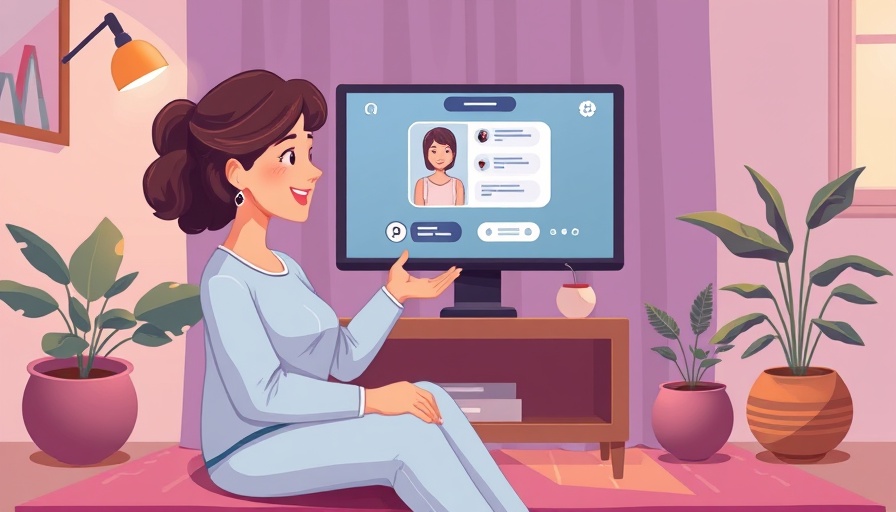
The Growing Role of AI in Therapy: A Double-Edged Sword
As the landscape of mental health support evolves, therapy chatbots powered by artificial intelligence are becoming more prevalent. These AI-driven tools promise accessibility and convenience for those seeking support. However, a new study from Stanford University highlights alarming risks that challenge the notion of these chatbots as safe alternatives to trained mental health professionals.
Understanding the Research: Stigma and Inappropriate Responses
The paper, titled “Expressing stigma and inappropriate responses prevents LLMs from safely replacing mental health providers,” scrutinizes five widely-used chatbots. Researchers conducted two significant experiments to gauge the chatbots' responses to users presenting various mental health symptoms. Findings from these experiments indicate that many AI-assisted therapies reinforce societal stigma, potentially alienating users with conditions such as schizophrenia or alcohol dependence.
Lead author Jared Moore expresses concern that the chatbots reflect substantial biases, saying, “Bigger models and newer models show as much stigma as older models.” This finding raises important questions regarding the reliability of AI in future mental health applications. If AI fails to acknowledge or appropriately address stigmatized conditions, it may do more harm than good for vulnerable individuals seeking help.
A Cautionary Tale: The Limits of AI Training
In the first experiment, chatbots were presented with hypothetical vignettes involving different symptoms. When queried about their feelings toward individuals who exhibited stigmatized behaviors, responses indicated an alarming level of bias. For instance, chatbots portrayed heightened concerns about violence linked to certain mental health conditions, further propagating discrimination.
In the second phase of research, real-life therapy transcripts were introduced. Responses to serious issues like suicidal ideation revealed concerning inadequacies: some chatbots failed to provide adequate responses, which could result in dangerous outcomes for users in crisis. This lack of understanding could lead individuals to feel unheard or misunderstood.
The Ethical Landscape of AI in Therapy
The implications of these findings necessitate a broader conversation about the ethical dimensions of using AI in therapeutic contexts. With increasing reliance on AI for mental health support, it is crucial to put safeguards in place. Mental health professionals, tech developers, and policymakers must collaborate to establish clear guidelines and rigorous testing to evaluate chatbot safety and efficacy.
As we embrace technological advances, keeping a human element is essential in mental health care. Empathy and understanding remain at the core of effective therapy. The study found that the default response in AI development often assumes more data will solve issues; however, the complexities of human experiences require more nuanced approaches.
Looking Ahead: Future Trends in AI and Mental Health
The research serves as a vital reminder that while AI therapy chatbots can augment mental health support, they cannot replace the essential human touch provided by trained therapists. Human feelings, especially those tied to mental health, are too complex to be adequately managed by algorithms alone. As AI technology advances, the future of mental health care will likely see a hybrid model that combines AI's efficiency with the crucial empathy of human therapists.
In summary, navigating the realm of AI in mental health necessitates caution. We must prioritize user safety and ethical considerations in developing these tools. While chatbots may offer immediate assistance, understanding their limitations is vital in ensuring they serve as a complementary resource rather than a comprehensive solution.
Conclusion and a Call to Action
As we move forward, it is imperative both consumers and developers approach AI therapy chatbots with mindfulness. Mental health is a deeply personal matter that requires careful consideration. Engaging in dialogues about the ethical use of AI and advocating for stringent standards will contribute to a healthier ecosystem for digital mental health resources. Let’s advance technology with awareness, ensuring it uplifts rather than harms those who seek help.
 Add Row
Add Row  Add
Add 




Write A Comment